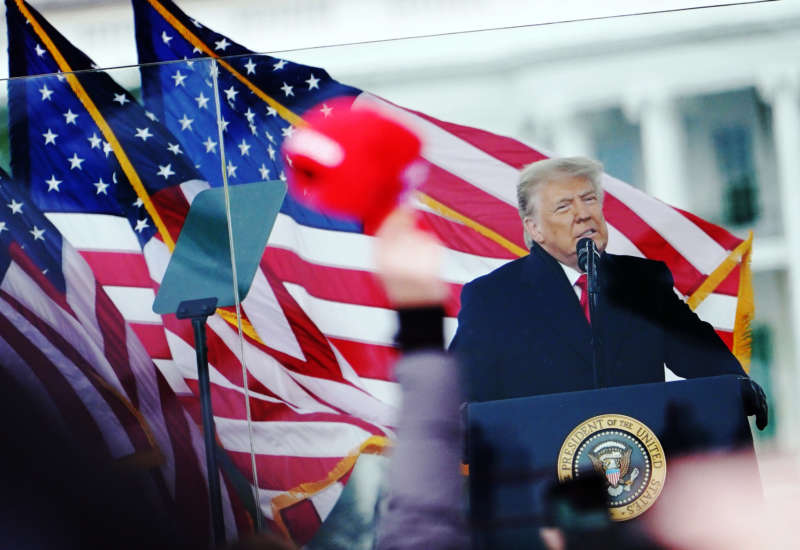The White House has formally rejected objections from former President Donald Trump regarding documents and communications he didn’t want shared with the House select committee investigating the January 6 breach of the United States Capitol building.
Two letters penned by White House counsel Dana Remus said that President Joe Biden would not accept Trump’s claims to executive privilege that attempt to keep the documents out of the January 6 commission’s hands.
The select committee has requested “all documents and communications within the White House” on January 6 — including schedules and meetings, as well as call logs, that may exist from that day.
Last Friday, Remus informed the Archivist of the United States David Ferriero about Biden’s opinion regarding the matter, and told the Archivist to produce the documents to the commission within “30 days after your notification to the former President, absent any intervening court order.”
In response, Trump claimed that the commission’s requests “are not based in law or reality — it’s just a game to these politicians.”
Remus then produced a second letter, released publicly on Wednesday, reiterating that Biden was again rejecting Trump’s protestations.
“President Biden has considered the former President’s assertion, and I have engaged in additional consultations with the Office of Legal Counsel at the Department of Justice,” Remus’s second letter stated. “For the same reasons described in [sic] earlier letter, the President maintains his conclusion that an assertion of executive privilege is not in the best interests of the United States.”
“Accordingly,” Remus added, “President Biden does not uphold the former President’s assertion of privilege.”
Trump can still try to assert executive privilege objections to the commission’s efforts to seek documents from his final days in office. But he will likely fail, experts have said.
The Presidential Records Act gives final decision-making power related to executive privilege to the current president. Former presidents can sue if they disagree with the decision, but in the past, courts have generally sided with parties that have sought to make such information part of the public record.
“There’s a legitimate scope of executive privilege, which ensures a president gets candid, thorough advice” from their advisers, said NBC News legal analyst Joyce Alene last month. “But it doesn’t extend to covering up efforts to keep the new president from taking office. Trump’s desperation to keep info secret says it all.”


